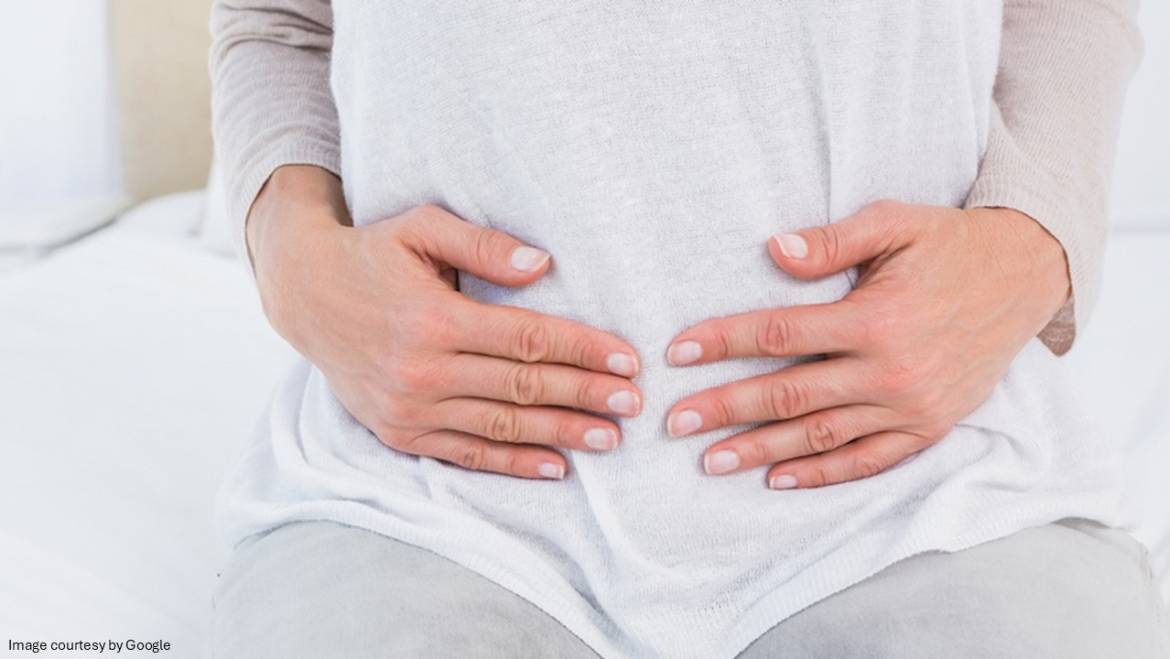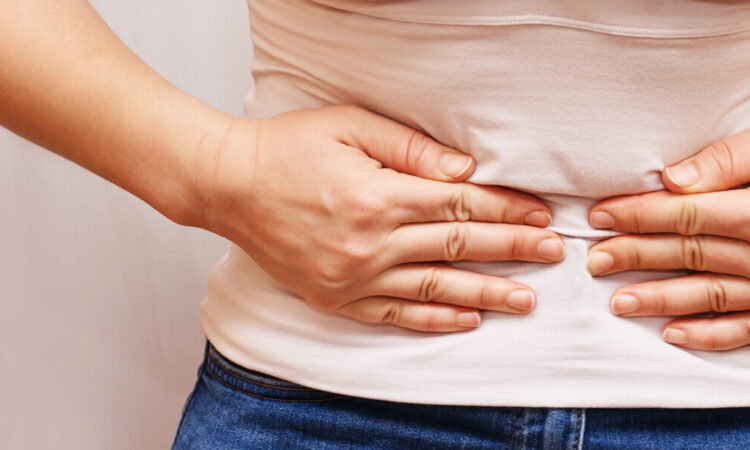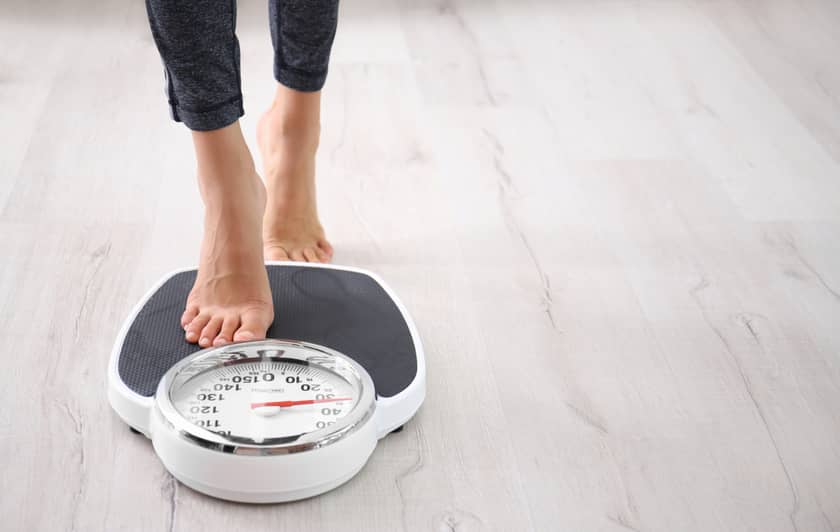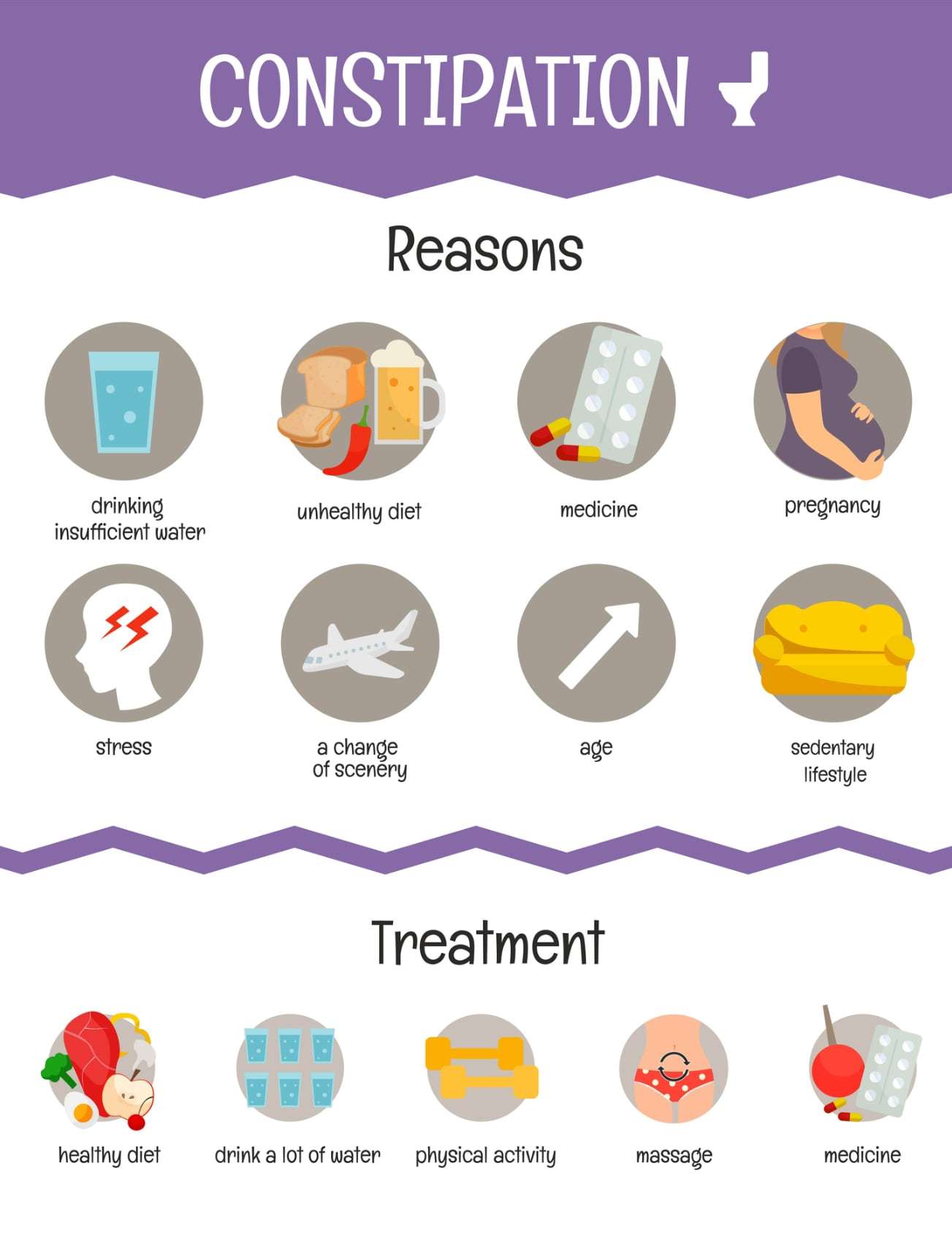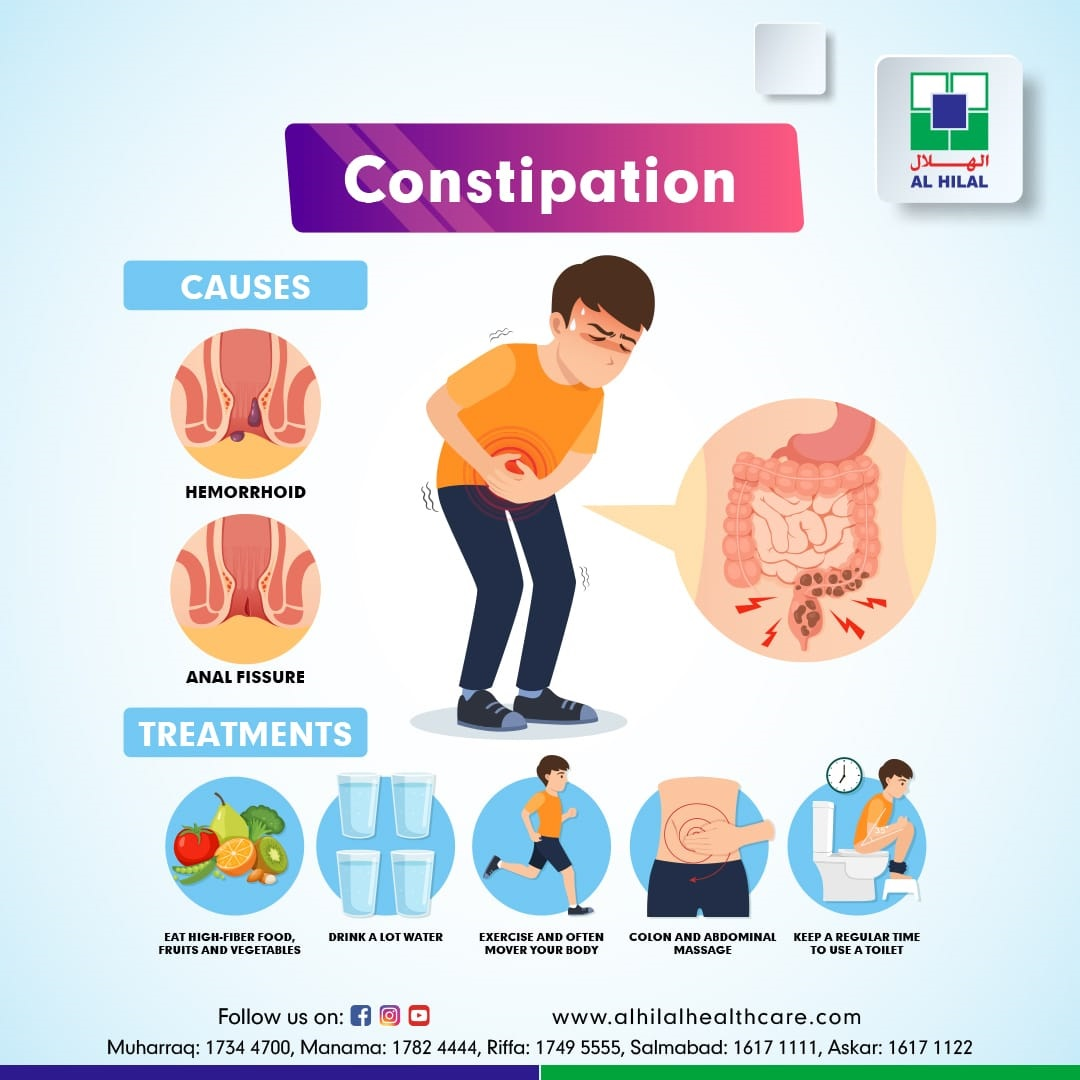Can Constipation Cause 5 Pound Weight Gain

The aroma of freshly brewed coffee wafted through the air, mingling with the scent of cinnamon rolls baking in the oven. Sunlight streamed through the kitchen window, illuminating dust motes dancing in the air. Sarah, however, stood frozen, staring at the bathroom scale, a frown etched on her face. Five pounds. Where had they come from?
The nagging question of whether constipation can truly cause a noticeable weight gain often plagues individuals struggling with digestive issues. While not actual fat gain, the buildup of waste can indeed lead to a temporary increase on the scale, contributing to discomfort and bloating.
Understanding Constipation
Constipation, a common ailment, is generally defined as having fewer than three bowel movements a week. This can be accompanied by hard, dry stools that are difficult to pass.
Symptoms range from abdominal discomfort and bloating to a feeling of incomplete evacuation. The causes are varied and complex.
Factors like low fiber intake, dehydration, lack of physical activity, and certain medications can all contribute to the problem. Even stress can play a role.
The Role of Fiber and Hydration
Fiber, often referred to as roughage, is the indigestible part of plant-based foods. It adds bulk to the stool, helping it move more easily through the digestive tract.
A diet lacking in fiber-rich foods like fruits, vegetables, and whole grains can significantly increase the risk of constipation. Adequate hydration is also vital.
Water helps soften the stool, making it easier to pass. Without enough fluids, the colon absorbs water from the stool, leading to hard, dry stools.
Medications and Underlying Conditions
Certain medications, such as opioids, antidepressants, and iron supplements, are known to cause constipation as a side effect. Underlying medical conditions can also contribute.
Conditions like irritable bowel syndrome (IBS), hypothyroidism, and neurological disorders can affect bowel function. It's essential to consult a healthcare professional to rule out any underlying issues.
The Weight Gain Connection
While constipation doesn't directly cause the body to store fat, it can lead to a temporary increase in weight. This is due to the buildup of stool in the colon.
The amount of weight gain can vary from person to person, depending on the severity of the constipation and individual differences in metabolism. For some, it might be a pound or two, while for others, it could be closer to five pounds.
This weight is not permanent and will resolve once bowel movements return to normal. The discomfort and bloating associated with constipation, however, can be very real.
How Much Weight Can You Really Gain?
It's important to differentiate between actual weight gain (fat) and the temporary increase due to stool retention. The latter is precisely what we're addressing when discussing constipation.
Dr. Anita Patel, a gastroenterologist at City Hospital, explains, "The average person carries about 1-2 pounds of stool at any given time. In cases of severe constipation, this can increase significantly."
She continues, "While 5 pounds might be on the higher end, it's certainly possible, especially if someone hasn't had a bowel movement in several days or even weeks in extreme cases."
The Bloating Factor
Besides the actual weight of the stool, constipation often leads to bloating. This occurs as the undigested food ferments in the colon, producing gas.
The trapped gas can cause the abdomen to feel distended and uncomfortable, contributing to the sensation of weight gain. Bloating can also make clothing feel tighter and less comfortable.
This combination of stool retention and bloating can be quite distressing, leading to feelings of self-consciousness and discomfort.
Addressing Constipation and Its Impact
Fortunately, constipation is often manageable with lifestyle changes and over-the-counter remedies. Increasing fiber intake is a crucial first step.
Aim for 25-30 grams of fiber per day from sources like fruits, vegetables, whole grains, and legumes. Slowly increase fiber intake to avoid gas and bloating.
Drinking plenty of water is equally important. Aim for at least eight glasses of water per day to help soften the stool.
Lifestyle Changes and Natural Remedies
Regular physical activity can also help stimulate bowel movements. Even a short walk each day can make a difference.
Probiotics, beneficial bacteria that live in the gut, can also promote healthy digestion. Foods like yogurt, kefir, and sauerkraut are good sources of probiotics.
For those seeking natural remedies, prune juice is a well-known and effective option. It contains sorbitol, a natural sugar alcohol that acts as a mild laxative.
When to Seek Medical Advice
While most cases of constipation can be managed at home, it's important to seek medical advice if constipation is severe, persistent, or accompanied by other symptoms.
Symptoms like abdominal pain, nausea, vomiting, rectal bleeding, or unexplained weight loss should be evaluated by a healthcare professional. These symptoms could indicate a more serious underlying condition.
A doctor can perform a thorough evaluation and recommend appropriate treatment, which may include prescription medications or further diagnostic testing.
Debunking the Weight Loss Myth
It's important to emphasize that using laxatives for weight loss is not a healthy or effective strategy. While laxatives can provide temporary relief from constipation, they do not affect fat absorption or calorie intake.
Misusing laxatives can lead to dehydration, electrolyte imbalances, and even damage to the digestive system. Moreover, the weight loss experienced is primarily water weight and will return once normal fluid balance is restored.
Sustainable weight loss requires a balanced diet, regular exercise, and healthy lifestyle habits. Relying on quick fixes like laxatives can be harmful and counterproductive in the long run.
The Psychological Impact
The discomfort and bloating associated with constipation can have a negative impact on mental well-being. Feeling constantly bloated and uncomfortable can lead to feelings of self-consciousness and anxiety.
In some cases, chronic constipation can even contribute to depression. It's important to address both the physical and psychological aspects of constipation to improve overall quality of life.
Seeking support from friends, family, or a therapist can be helpful in managing the emotional challenges associated with digestive issues.
Looking Ahead: Research and Future Directions
Ongoing research continues to explore the complex relationship between gut health and overall well-being. Scientists are investigating the role of the gut microbiome in various aspects of health, including digestion, immunity, and even mental health.
Understanding the intricate workings of the digestive system can lead to more effective strategies for preventing and treating constipation. This includes exploring personalized approaches to dietary and lifestyle management.
As our knowledge of the gut microbiome expands, we may see the development of novel therapies that target specific bacterial imbalances to improve digestive health.
In conclusion, while constipation can cause a temporary weight gain of up to five pounds due to stool retention and bloating, it's not an indicator of actual fat accumulation. By focusing on a healthy diet, staying hydrated, and engaging in regular physical activity, you can effectively manage constipation and minimize its impact on your weight and overall well-being.
Sarah, armed with newfound knowledge, took a deep breath and stepped off the scale. Five pounds wasn't the end of the world. She knew what she needed to do: more fiber, more water, and a long walk in the sunshine. The cinnamon rolls could wait.






